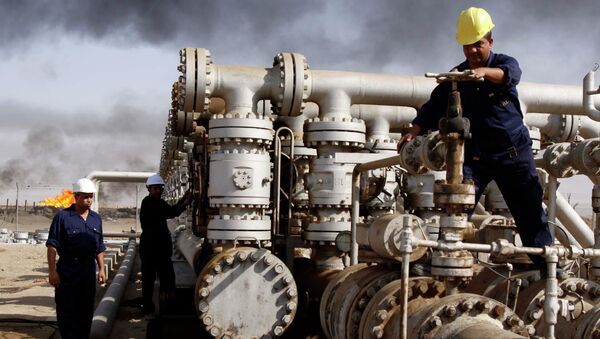"The decision was not directed to any country. It's not directed to the United States, it is not directed to Russia, it is not directed to any country. It was a pure economic decision by our ministers and we [OPEC] supported it," el-Badri said at the World Economic Forum in Davos, Switzerland.
Global oil prices started falling in June 2014 amid oversupply in the market. In November 2014, OPEC decided not to change oil output levels, contributing to a further decrease in prices.
The OPEC chief, however, told Bloomberg TV earlier in the day that he expected oil prices to stabilize at $40-50 per barrel before they eventually start to recover. He predicted that the situation could be resolved by June, when it will be clear whether oil supplies should be cut at such prices.
El-Badri pointed out that OPEC had not increased oil production during the past 10 years, while non-OPEC countries had increased their output by seven million barrels per day.
On January 12, the US investment bank Goldman Sachs published its 2015 oil forecast. According to the bank, the Brent price could fall to $43 per barrel over the next six months while the WTI (West Texas Intermediate) crude oil price could decline to $39 per barrel.




